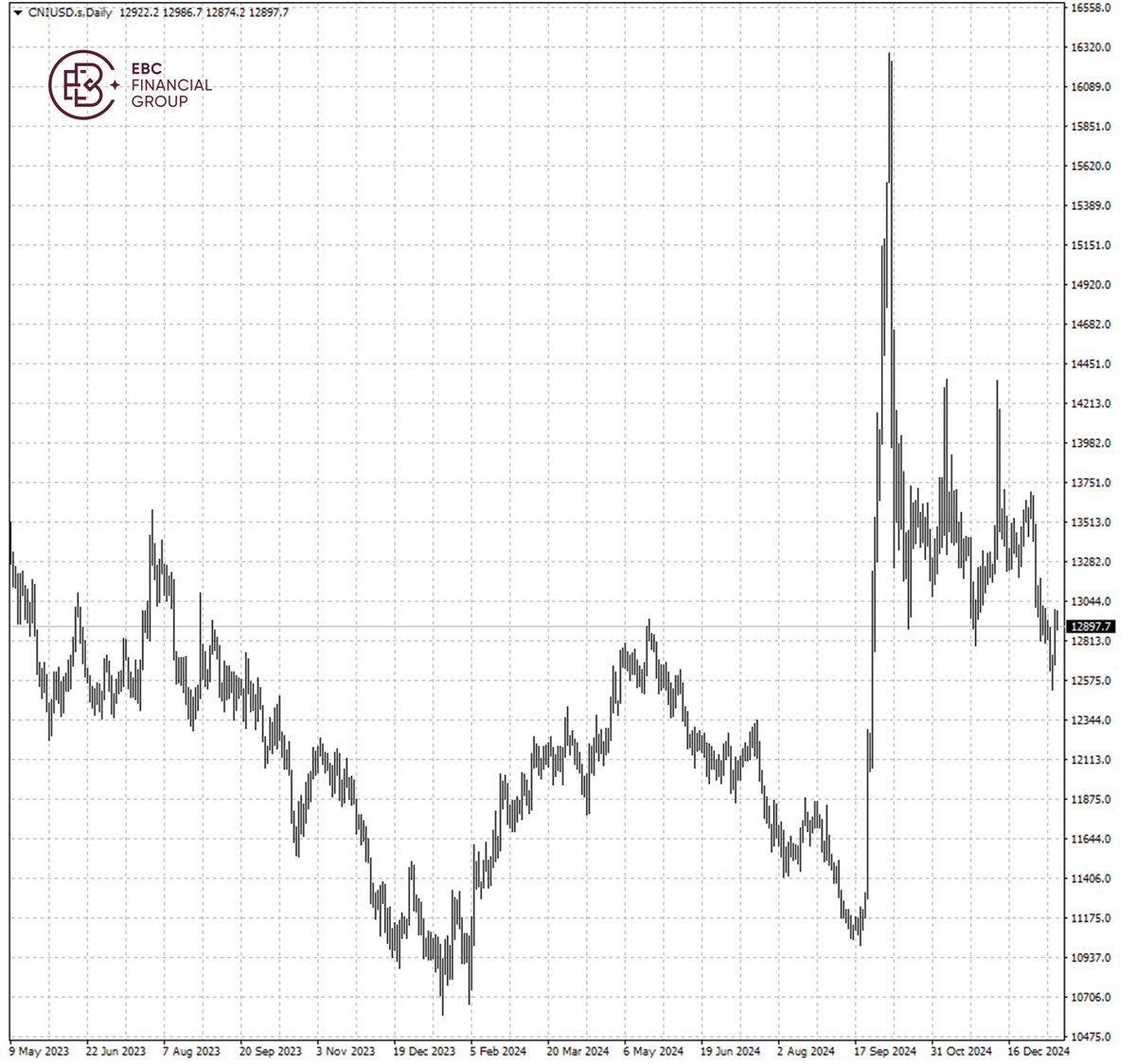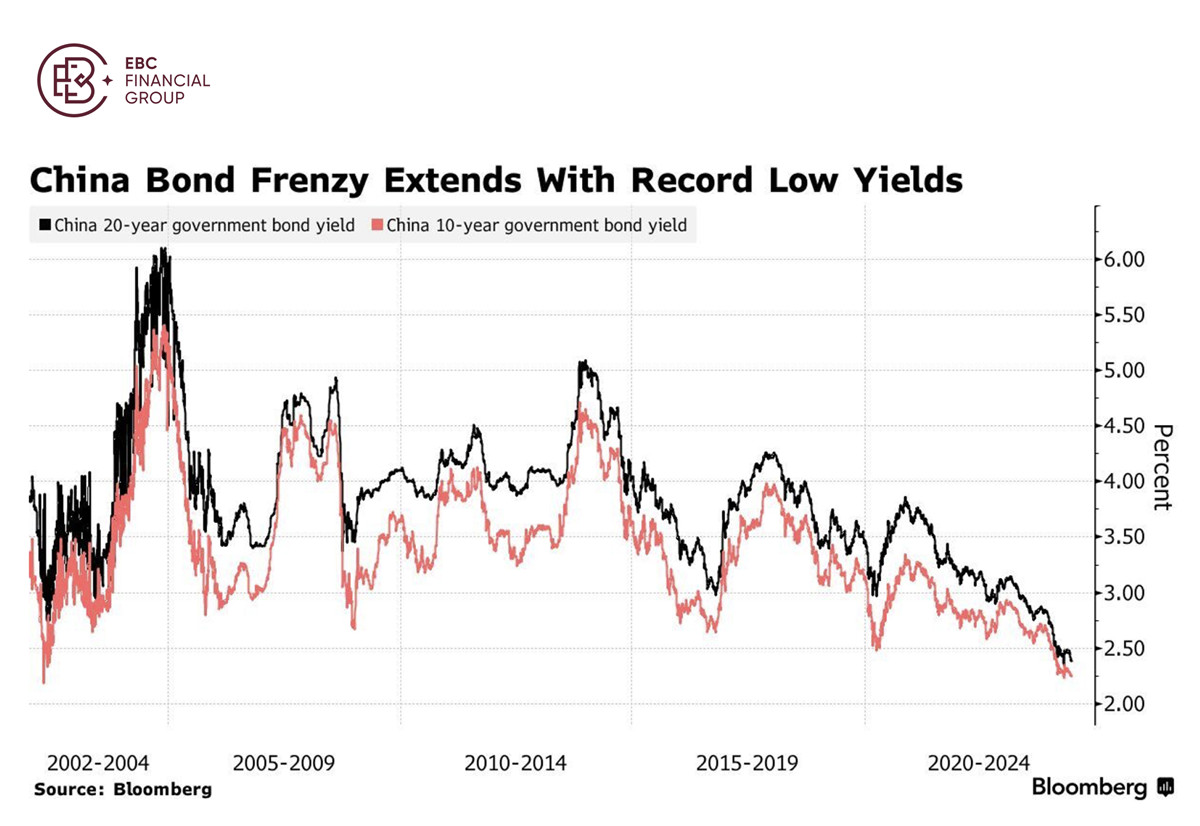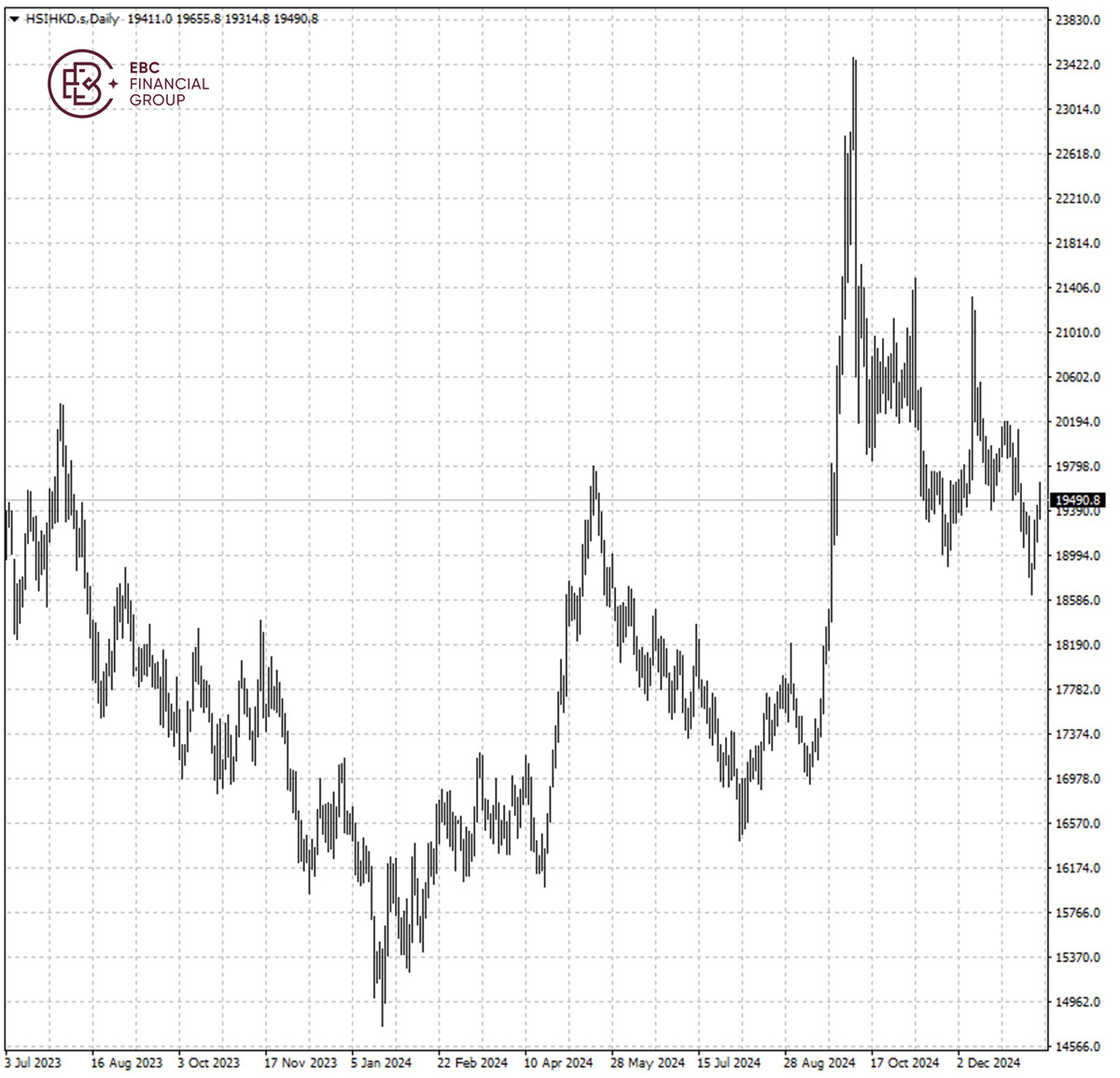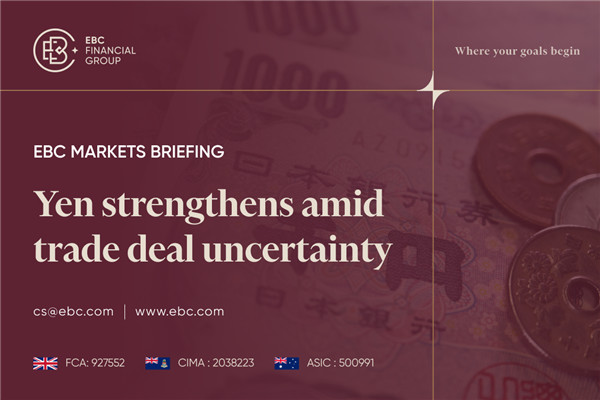China A50 jumped by around 2% on Tuesday, its biggest daily gain since 9
December. However, it is still in red so far, signalling a rough patch ahead in
2025.

Chinese stocks saw their first annual gain in 2024 following an unprecedented
three-year decline set off by the COVID-19 pandemic, property sector woes and
weak consumer confidence.
Many retail traders sold shares in early January ahead of Trump's presidency,
precipitating the weakest start to the new year in almost a decade for the
market with few engines to fuel a sustainable rally.
AI frenzy, the theme dominating global equities, sent some Chinese tech
stocks soar, but unlikely their US peers, the financial results have not
justified any benefits hyped up by local analysts.
While half a trillion yuan worth of borrowed money ploughed into the market
since end-September, global hedge funds raised exposure to China unwound them
after a dazzling run fizzled.
Investors waited for more concrete policies, but retail trading remained
active, evidenced by high turnover, surging prices of small-cap shares and a
rapid build-up of leveraged bets.
Retail money accounts for roughly 70% of China's share trading, hence there
is a risk that a sell-off could trigger a disorderly unwinding of leveraged
bets. And retail trades have nearly exhausted patience.
Pending stimulus
China's top securities regulator said it will work on building a mechanism to
stabilise the market, vowing to anchor market expectations in 2025 after a
disappointing start to the new year.
While the regulator did not provide details on how such a mechanism would
work, it pledged to beef up its policy guidance, and added that it will promptly
respond to market concerns.
The formation of a state-backed stabilisation fund was among the items in
Beijing's broad stimulus package, but there has been no update on its progress
since announced last year.
China's central bank suspended treasury bond purchases on Friday to stabilise
the currency and douse a runaway bond rally which has driven outflow from risky
assets, especially stock and property.

The PBOC has warned for months about bubble risks as long-dated yields hit
successive record lows, though at the same time authorities have foreshadowed
further easing.
The government is presumably waiting for details on Trump's trade policies
before mapping out further stimulus, since the latest economic data point to a
moderate recovery.
Members of Trump's incoming economic team are discussing slowly ramping up
tariffs month by month, aimed at boosting negotiating leverage without a spike
in inflation, according to people familiar with the matter.
Wall St views
Goldman Sachs strategists are sticking to their bullish stance on Chinese
stocks despite an ongoing rout, predicting that benchmarks will rise about 20%
by year-end.
They remain overweight on both onshore and offshore Chinese shares as the
risk-reward ratio is still favourable, as better tariff and liquidity backdrop
may improve sentiment in late Q1.
HSBC is turning bullish on Chinese stocks listed in Hong Kong, touting them
as beneficiaries of more "favourable policy rhetoric" in mainland China and a
better outlook for the domestic economy.
The bank raised Hong Kong to overweight to neutral, saying that lower
interest rates, along with initiatives to boost tourism and revive the ailing
local property sector, will support Hong Kong's stocks.

The Hang Seng index was still down over 3% so far this year, trading below
20,000 that was first hit in 2006. The index has slipped into a long-term
downtrend amid prolonged downturn in the real estate sector.
A turnaround in the sector will benefit HK stock than Mainland ones given a
higher weighting. S&P Global Ratings and Morgan Stanley forecast in October
the housing market will bottom in the second half of 2025.
Even the market stabilises, a full-scale recovery seems out of the question.
Analysts project any rebound in home sales and new construction would remain
subdued in the coming years.
Disclaimer: This material is for general information purposes only and is not
intended as (and should not be considered to be) financial, investment or other
advice on which reliance should be placed. No opinion given in the material
constitutes a recommendation by EBC or the author that any particular
investment, security, transaction or investment strategy is suitable for any
specific person.









